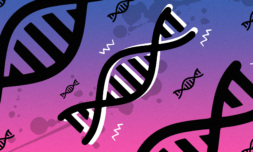The study and results
The goal of the researchers was to reset the neural pathways of the dopamine reward system by altering the synthesis of the neurotransmitter in brain cells. The gene was targeted to increase dopamine synthesis within cell bodies that produce the neurotransmitter.
This was done through a harmless virus that introduced the gene for a protein called glial-derived neurotrophic factor (GDNF) to a specific brain area involved in addiction and rewards. To ensure that the GDNF was delivered correctly, the researchers used magnetic resonance imaging (MRI) and injected the gene into the said area.
The experiment saw eight male macaque monkeys that were conditioned to be alcoholic by habituating them into an intake of 5% alcohol. Half of the monkeys were given the viral injection while the other half served as controls and were given sterile saline instead (via injection). The results of the study showed that alcohol consumption in the monkeys decreased up to 90% with an increased expression of dopamine.
‘The animals that received an inactive form of the gene continued drinking, whereas in the animals that were given GNDF, their dopamine was restored,’ Professor Kathleen Grant said. Grant, who co-led the research, further mentioned that the monkeys who received the gene went from eight to ten drinks a day to only one or two.
Human implications
An estimated 3 million deaths worldwide are the result of alcohol addiction and this study shows that gene therapy could be a potential new treatment for alcohol use disorder (AUD). Researchers from the study are now planning to conduct clinical trials to test the gene therapy in people.
If gene therapy is found to be safe and effective in clinical trials, it could offer new hope for people who are struggling with alcohol addiction. Despite, AUD being a severe and chronic disease, there are limited effective treatments for it.
Currently, the most effective treatments for AUD are behavioral therapies, such as cognitive-behavioral therapy (CBT) and contingency management (CM). However, these therapies can be time-consuming and expensive, and they may not be effective for everyone.
Gene therapy is a promising approach because it could be a one-time treatment that could potentially cure AUD. Nevertheless, delivering gene therapy has its share of risks from infections to severe immune reactions – further studies are needed to assess the danger of the treatment.
https://www.youtube.com/watch?v=CvJNzxvPCzg&pp=ygUMZ2VuZSB0aGVyYXB5
Ethical considerations of the study
The ethical implications of lab monkeys have been debated for many years. In the case of this study, the macaque monkeys were primed to be alcoholics by exposing them to high levels of alcohol over six months.
The psychological effects of the alcohol consumption alone would have several potential consequences ranging from depression to destructive behaviors leading to a possibility of death.
The pandemic saw many pharmaceutical companies testing vaccines on monkeys before they became available to humans, and Elon Musk’s Neuralink confirmed the death of some subjects during its testing procedures.
In February, a letter was written to the US National Institute for Health to end the experimentation on macaques at Harvard. The letter was signed by over 380 doctors, scientists, and academics including Jane Goodall.
Unfortunately, the use of monkeys across all facets of development, be that tech, cosmetics, or pharmaceuticals is still commonplace and very little action has been taken.
While the study by Grant and colleagues did not cause any apparent harm to the monkeys, it is important to consider the potential psychological and physical effects of being exposed to alcohol addiction, and whether the results are even relevant to humans.




















